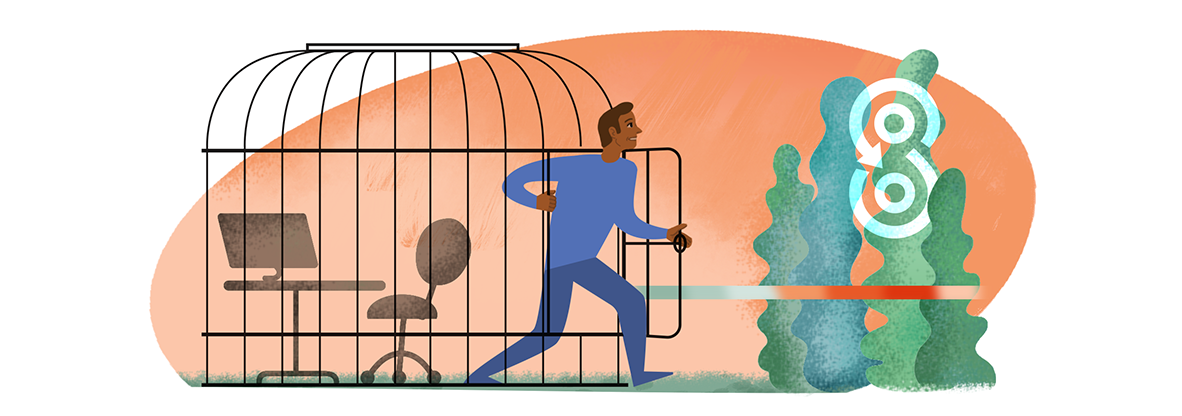5 Tips for Switching Careers in Your 50s

Switching careers in your 50s might seem like a huge leap, but it’s never too late to pursue a new path. If you’re looking for more fulfilment or just a better work-life balance, making a career switch can be very rewarding.
While the job market may feel different than when you first started, your years of experience and the skills you’ve gained can work in your favour. That said, if you want to transition as easily as possible, you’ll still need to plan your career change carefully.
You’ll need to take a thoughtful approach, from identifying your transferable skills to networking with the right people, to land a role that fits your goals. With the right mindset and strategy, you can overcome any challenges you may face during your career switch and land a role that makes you happy.
In this guide, we’ll give you some practical tips to help you handle a career change with confidence. Whether you’re switching to a new industry or starting your own business, these steps will set you on the right path.
1. Assess Your Transferable Skills and Strengths
Before you switch to a new career, you should take a close look at the skills and strengths you’ve built over the years. Many of your abilities, like leadership, communication, problem-solving, and project management, can be valuable in different industries.
You should make a list of your skills and think about how they apply to the new role you’re considering. For example, if you’ve spent years managing teams, you might be a good fit for leadership or consulting roles.
Identifying your transferable skills will help you focus on jobs that match your experience. This will give you confidence and direction as you look for new career opportunities.
2. Research Emerging Industries and Job Markets
As industries evolve, new job opportunities are continuing to emerge. Sectors like technology and remote work-friendly roles are constantly expanding and often welcome experienced professionals.
If you’re thinking of switching careers in your 50s, it’s wise to start by researching growing fields that match your skills and interests. This will involve looking into job trends, salary expectations, and required qualifications for the roles you’re considering. You’ll want to understand what’s in demand and connect with professionals in these fields to get insights.
Conducting your research properly will increase your chances of finding a career that gives you stability and the best opportunities for growth.
3. Upskill with Relevant Training and Certifications
Learning new skills can make your career switch smoother, as well as boost your confidence. When you’re researching jobs, find out which qualifications or certifications are needed for your desired field and invest in training if you need it.
If you’d prefer flexible learning options, sign up with us to find a job-specific career mentor online. For example, if you’re moving into digital marketing, you can pick a mentor for the role you want, whether it’s SEO or social media management. Similarly, if tech interests you, you can choose a mentor who provides coding or data analysis training.
Upskilling will show employers that you’re serious about the transition and ready to adapt to your new role. Even taking small steps towards improving your knowledge can make a big difference when it comes to landing your next job.
4. Leverage Your Network for Opportunities
Your network can be a great help when you’re switching careers in your 50s. Before you dive into the deep end of job searching, reach out to your former colleagues, mentors, and industry contacts to let them know about your career change. They may have valuable advice and job leads, or even connections to introduce you to potential employers.
You might also find that attending networking events is beneficial, as well as using platforms like LinkedIn to connect with people in your desired field. Talking to people already in the industry can give you good insights into job opportunities and hiring trends.
When you build relationships and make an effort to stay visible in your network, you might just open doors to new career possibilities that you wouldn’t have found on your own.
5. Adopt a Growth Mindset and Embrace the Transition
Switching careers in your 50s is a big change, but the way you choose to look at it can make all the difference. Having a growth mindset means being open to learning and adapting and seeing challenges as opportunities.
Although you might face setbacks along the way, don’t let them discourage you. You should stay positive, focus on your strengths, and be patient with the process. Every step you take – whether you’re learning new skills or making new connections – will bring you closer to your goal.
Try to make the transition with confidence, and remember that change can lead to exciting new possibilities. With determination, you can build a fulfilling new career.
For a Smooth Career Switch in Your 50s, Sign Up With Career Navig8r
Now that you’ve read our tips for switching careers in your 50s, you’re probably keen to make the transition easier with guidance from a career mentor.
At Career Navig8r, we understand that starting a new career or trying to advance in your existing role isn’t easy. You may not know the best route to success, and you may need more support than your supervisor or team leader can provide.
You may also have numerous questions about what to expect, what skills you’ll need, and what employers are looking for when they’re hiring. That’s where you could benefit from working with a qualified and experienced career mentor, who can answer these questions and help you grow in your chosen career.
Do you need a career mentor for your specific job role or industry? Sign up with Career Navig8r to find your ideal mentor now.


